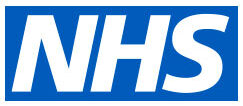Stay Safe and Well in the Summer Heat

As temperatures rise, it’s important for everyone to take precautions to stay safe and well in the hot weather. While many of us enjoy the sunshine, high temperatures can pose a risk to our health, particularly for vulnerable patient groups.
Your health and well-being are our top priority. We’re sharing some essential advice from the NHS to help you cope during periods of hot weather and avoid heat-related illnesses.
Who is most at risk?
Hot weather can affect anyone, but some people are more vulnerable to serious health impacts. These include:
- Older people (especially those over 75)
- Babies and young children
- People with long-term health conditions (e.g., heart or lung conditions, diabetes, kidney disease, Parkinson’s disease, mental health conditions)
- Those on certain medications
- People who live alone or in care homes
- Individuals who are physically active outdoors or work in manual labour roles
Top tips for coping in hot weather:
- Stay out of the heat:
- Try to keep indoors or in the shade, especially between 11 am and 3 pm when the sun is strongest.
- Avoid strenuous outdoor activities during the hottest part of the day. If you must be active, plan for early morning or late evening.
- Cool yourself down:
- Have cold food and drinks.
- Take cool baths or showers.
- Sprinkle water over your skin or clothes.
- Avoid alcohol, caffeine, and hot drinks, as these can dehydrate you.
- Keep your living space cool:
- Close windows and pull down blinds or curtains during the day, especially on sun-facing windows, to block out heat.
- Open windows at night when the temperature outside has dropped to allow air to circulate.
- Turn off non-essential lights and electrical equipment, as these generate heat.
- Stay hydrated:
- Drink plenty of cold drinks, especially water, throughout the day. Don’t wait until you feel thirsty.
- Even if you’re not feeling hungry, eat a balanced diet to help your body replace any salt lost through sweating.
- Look out for others:
- Check on elderly relatives, friends, and neighbours, especially those who live alone or have underlying health conditions.
- Ensure babies, young children, older people, and pets are never left alone in parked cars or other closed spaces.
Recognising Heat Exhaustion and Heatstroke:
It’s crucial to know the signs of heat-related illnesses.
Symptoms of Heat Exhaustion can include:
- Headache
- Dizziness and confusion
- Loss of appetite and feeling sick
- Excessive sweating and pale, clammy skin
- Cramps in the arms, legs, and stomach
- Fast breathing or pulse
- High temperature
- Intense thirst
If you or someone else is showing signs of heat exhaustion, move to a cool place, get them to lie down and raise their feet slightly, give them plenty of water or a rehydration drink, and cool their skin (e.g., with cool water spray or damp cloths). They should start to cool down and feel better within 30 minutes.
Heatstroke is a medical emergency and needs urgent treatment. Call 999 if someone:
- Is still unwell after 30 minutes of resting in a cool place, being cooled, and drinking fluids.
- Has a very high temperature.
- Has hot, red skin that’s not sweating.
- Has a fast heartbeat.
- Is confused, restless, staggering, or has a seizure.
- Loses consciousness.
For more detailed information and advice on how to cope in hot weather, please visit NHS.uk:
- Heatwave: how to cope in hot weather: nhs.uk/live-well/seasonal-health/heatwave-how-to-cope-in-hot-weather/
- Heat exhaustion and heatstroke: nhs.uk/conditions/heat-exhaustion-heatstroke/
Stay safe and enjoy the summer responsibly!

